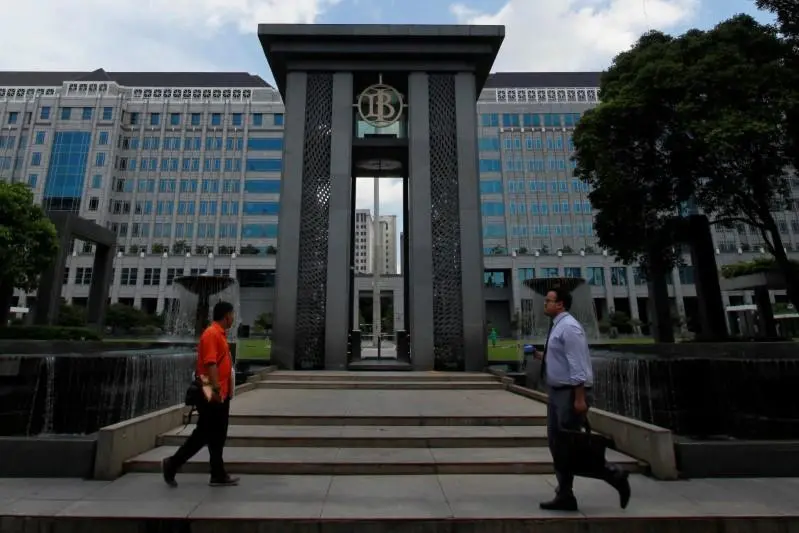PHOTO
Indonesia's central bank held interest rates unchanged on Thursday, as expected, saying current levels are sufficient for its inflation goal while reiterating its policy focus was still on making sure the rupiah is stable.
Bank Indonesia (BI) left the benchmark 7-day reverse repurchase rate at 5.75% for its seventh straight monthly policy review, as expected by the majority of economists surveyed by Reuters.
Its two other main rates were also kept unchanged.
BI has been trying to balance keeping the rupiah exchange rate stable, inflation in check and maintaining growth momentum in Southeast Asia's largest economy, as exports fall amid softening commodity prices and weak global growth.
Governor Perry Warjiyo told a press conference the central bank would continue its foreign exchange operations in the spot and domestic non-deliverable forward markets.
There have been calls for BI to start considering rate cuts to shore up economic growth after inflation cooled to within BI's target earlier than expected, but some economists also say further tightening is still necessary to narrow rate differentials with U.S. assets and keep the rupiah steady.
The rupiah had gradually fallen since mid-July to trade at around 15,300 a dollar, its weakest levels since March, while the benchmark 10-year bond yields rose to their highest since April earlier this week, amid rising U.S. Treasury yields and signs of weakness in China's economy.
The currency strengthened 0.3% ahead of the announcement and stayed unchanged after the rate decision.
Indonesia's growth outperformed market expectation in the second quarter amid rising household spending, but outlook for the remainder of 2023 remains bleak with exports contracting while a general election scheduled for February 2024 has held back investment decisions.
Meanwhile, inflation slowed in July to 3.08%, roughly in the midpoint of BI's 2% to 4% target range.
BI kept its 2023 gross domestic product growth forecast at a range of 4.5% to 5.3% and continued to predict inflation will stay within target range this year and next year, when the target will be moved to 1.5% to 3.5%. (Reporting by Fransiska Nangoy and Bernadette Christina Munthe; Writing by Gayatri Suroyo; Editing by Martin Petty)





















